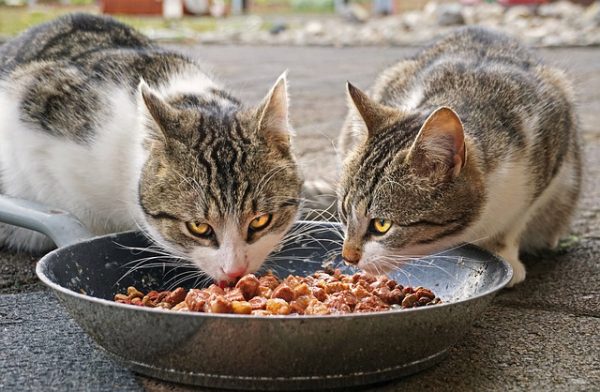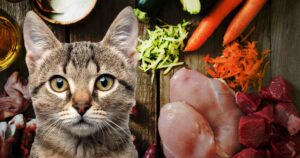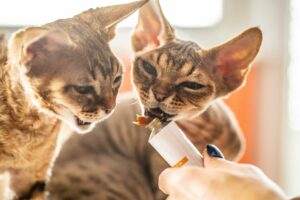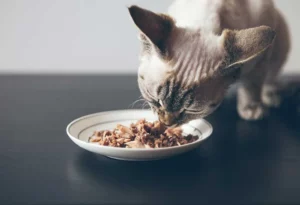A. Why make your own cat food?
Many cat owners turn to homemade cat food to ensure their feline friends get the best nutrition possible. Control of ingredients and quality allows for more targeted diets that address specific health concerns.
B. Benefits of Homemade Cat Food
There are several benefits to making homemade cat food. It improves your cat’s overall health, resulting in a shinier coat, healthier weight and higher energy levels. Additionally, it can help control allergies because you can keep potential allergens in check.
2. Understand cat food
A. Essential nutrients for cats
Cats need a balanced diet rich in important nutrients. Protein is essential for muscle development, while fat provides energy. Although not a major source of energy, carbohydrates contribute to overall health.
1. Protein
Lean meats such as chicken and turkey are excellent sources of animal protein. Adding organ meat ensures that your cat gets essential amino acids.
2. Fat
Healthy fats, such as those found in fish, support your cat’s skin and coat. Moderation is the key to preventing obesity.
3. Carbohydrates
Although cats are obligate carnivores, small amounts of carbohydrates from vegetables and grains can provide fiber and additional nutrients.
B. Common cat allergens
It’s important to know about common cat allergens, such as grains and certain proteins. Homemade cat food can eliminate potential allergens and reduce the risk of allergic reactions.
three. Basic ingredients for homemade cat food
A. Meat selection
1. Lean meat
Choosing lean meats provides essential protein without excess fat. Chicken and turkey are popular choices and are easy for most cats to digest.
2. Internal organs
Moderate amounts include liver and other internal organs. They are nutritious, but should not be your main source of protein.
B. Vegetables and grains
1. Security options
Choose cat-friendly vegetables such as carrots and peas. Cooking or pureeing vegetables can aid digestion. Add small amounts of grains (such as rice) for carbohydrates.
2. Foods to avoid
Avoid onions, garlic and excess salt. These can be harmful to cats.
Four. Easy Homemade Cat Food Recipes
A. Recipe 1: Chicken flavor
raw material:
chicken
radish
chicken liver
instruct:
Cook the chicken thoroughly.
Steam or boil the carrots until soft.
Mix the cooked chicken and carrots with the cooked chicken livers.
Eat in appropriate portions.
B. Recipe 2: Fish and Vegetable Mix
raw material:
white fish fillets
spinach
Quinoa
instruct:
Bake or steam the fish until done.
Steam spinach and quinoa separately.
Mix all ingredients.
Serve after cooling.
C. Recipe 3: Türkiye surprise
raw material:
ground turkey
sweet potato
Beef kidney
instruct:
Brown ground turkey in skillet.
Boil the sweet potatoes until soft.
Mix all ingredients, including cooked beef kidneys.
Eat in appropriate portions.
V. Preparation and storage tips
A. Safe Cooking Methods
Make sure all meat is thoroughly cooked to reduce the risk of bacterial contamination. Avoid herbs or additives that may be harmful to cats.
B. Guidelines for Proper Storage
Homemade cat food can be kept in the refrigerator for up to three days, or frozen for longer storage. Highlight sections to make them easier to find.
six. Switch to homemade cat food
A. Step by step introduction
Gradually introduce homemade cat food, mixing it with your cat’s current food. Check for any side effects.
B. Monitor health changes
Look for positive changes in your cat’s health, such as a shinier coat, more energy and maintaining a healthy weight.
seven. Frequently Asked Questions (FAQ)
A. What are the benefits of homemade cat food?
Homemade cat food provides greater control over ingredients, promotes overall health and meets specific nutritional needs.
B. Can I use raw meat in cat food recipes?
Although some people advocate eating raw meat, cooked meat is generally safer and reduces the risk of bacterial contamination.
C. How do I ensure that my cat gets all the necessary nutrients?
Their diet includes a variety of meats and vegetables. Consult your vet to create a balanced meal plan.
D. Are there specific foods I should avoid when making homemade cat food?
Avoid onions, garlic, excess salt and bones as these can pose health risks to cats.



